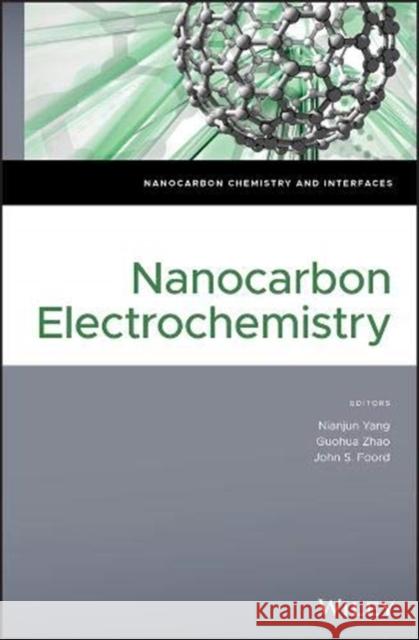Nanocarbon Electrochemistry » książka
Nanocarbon Electrochemistry
ISBN-13: 9781119468233 / Angielski / Twarda / 2020 / 384 str.
Provides a comprehensive introduction to the field of nanocarbon electrochemistry The discoveries of new carbon materials such as fullerene, graphene, carbon nanotubes, graphene nanoribbon, carbon dots, and graphdiyne have triggered numerous research advances in the field of electrochemistry. This book brings together up-to-date accounts of the recent progress, developments, and achievements in the electrochemistry of different carbon materials, focusing on their unique properties and various applications. Nanocarbon Electrochemistry begins by looking at the studies of heterogeneous electron transfer at various carbon electrodes when redox-active molecules are reversibly and specifically adsorbed on the carbon electrode surface. It then covers electrochemical energy storage applications of various carbon materials, particularly the construction and performance of supercapacitors and batteries by use of graphene and related materials. Next, it concentrates on electrochemical energy conversion applications where electrocatalysis at 0D, 1D, 2D, and 3D carbon materials nanocarbon materials is highlighted. The book finishes with an examination of the contents of electrogenerated chemiluminescence and photoelectrochemical pollutant degradation by use of diamond and related carbon materials. Covers the fundamental properties of different carbon materials and their applications across a wide range of areas Provides sufficient background regarding different applications, which contributes to the understanding of specialists and non-specialists Examines nanoelectrochemistry of adsorption-coupled electron transfer at carbon electrodes; graphene and graphene related materials; diamond electrodes for the electrogenerated chemiluminescence; and more Features contributions from an international team of distinguished researchers Nanocarbon Electrochemistry is an ideal book for students, researchers, and industrial partners working on many diverse fields of electrochemistry, whether they already make frequent use of carbon electrodes in one form of another or are looking at electrodes for new applications.











